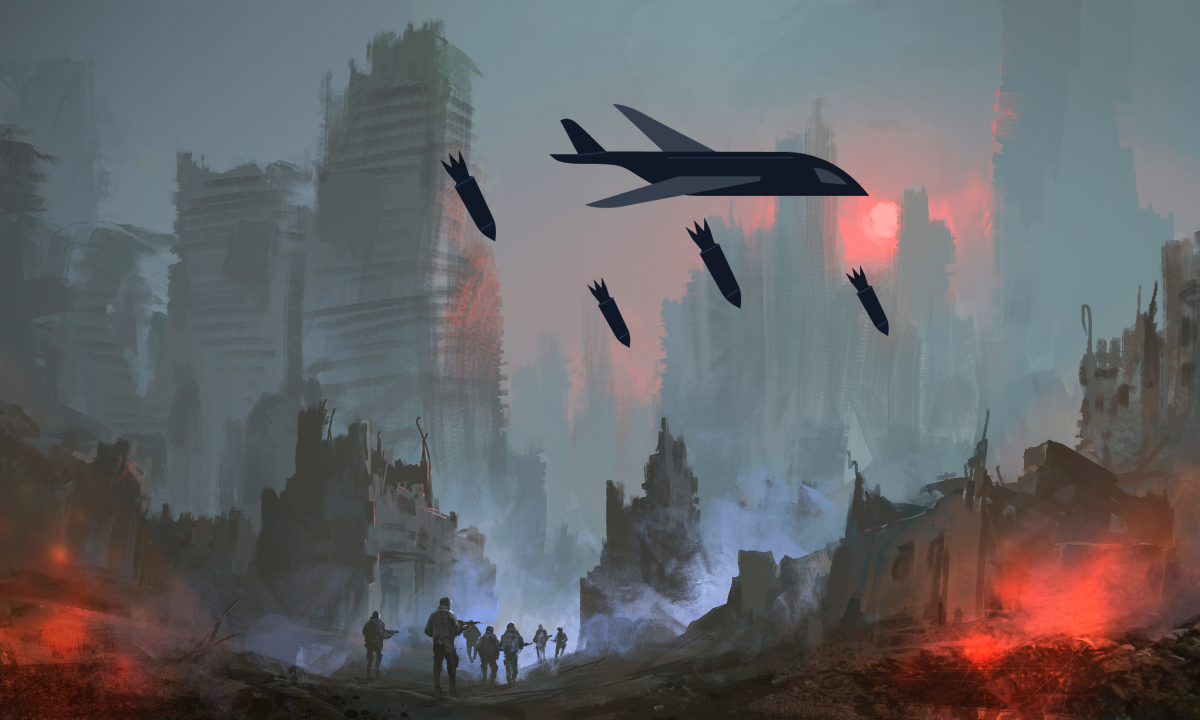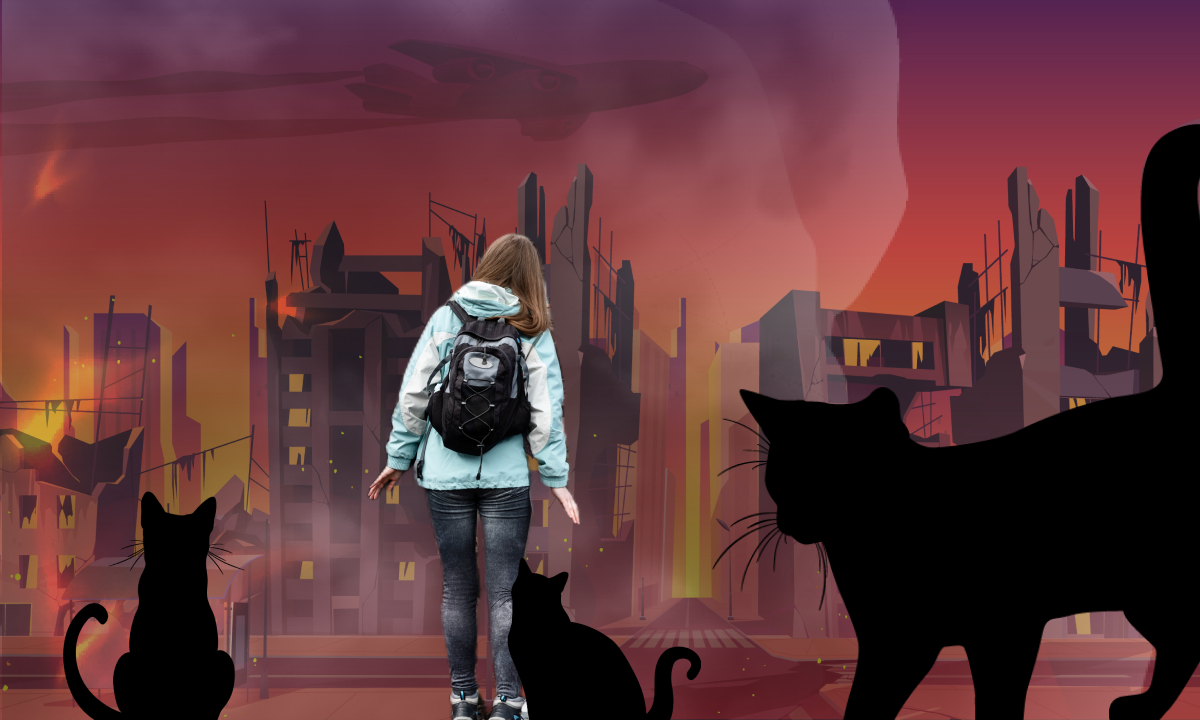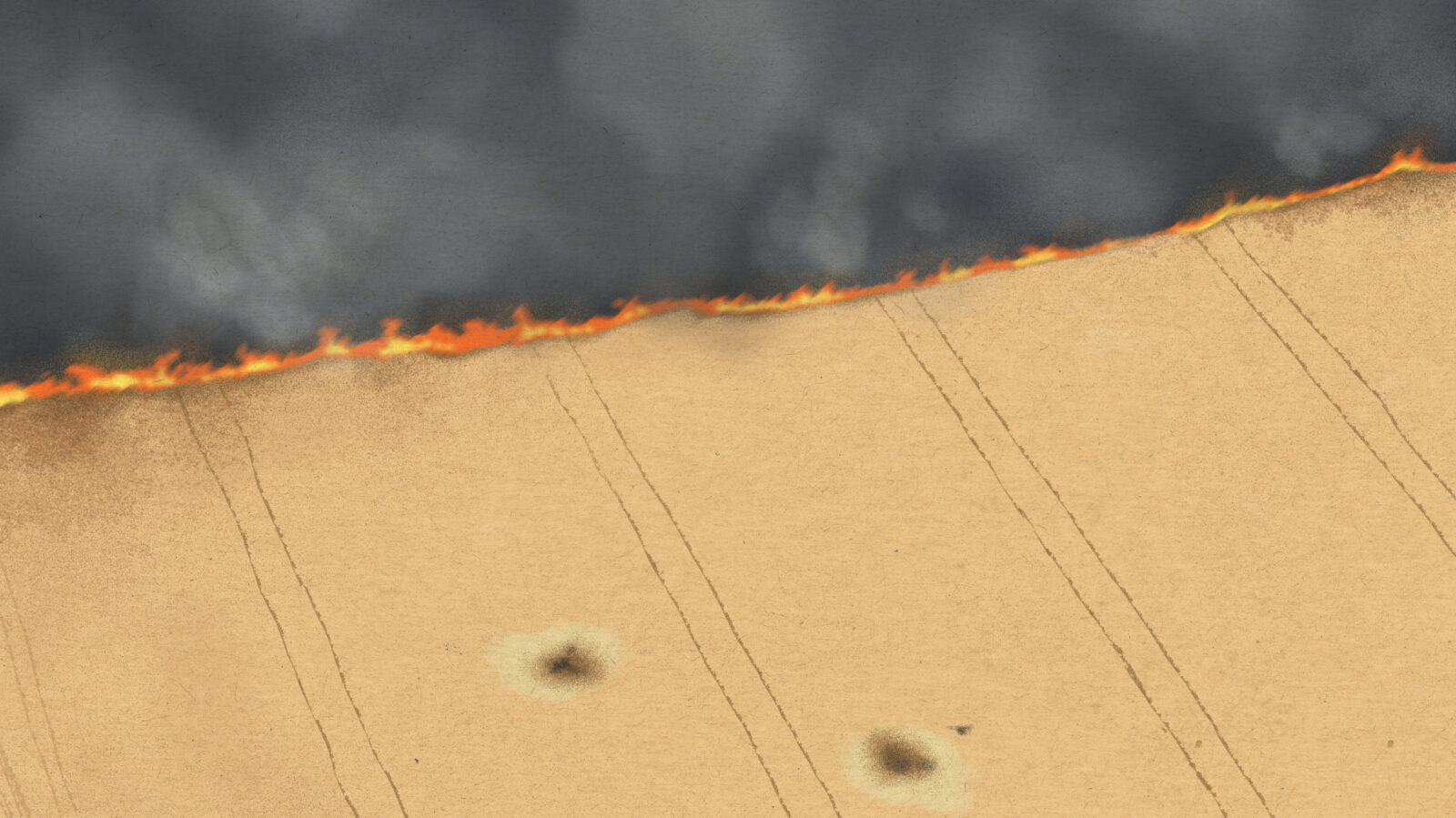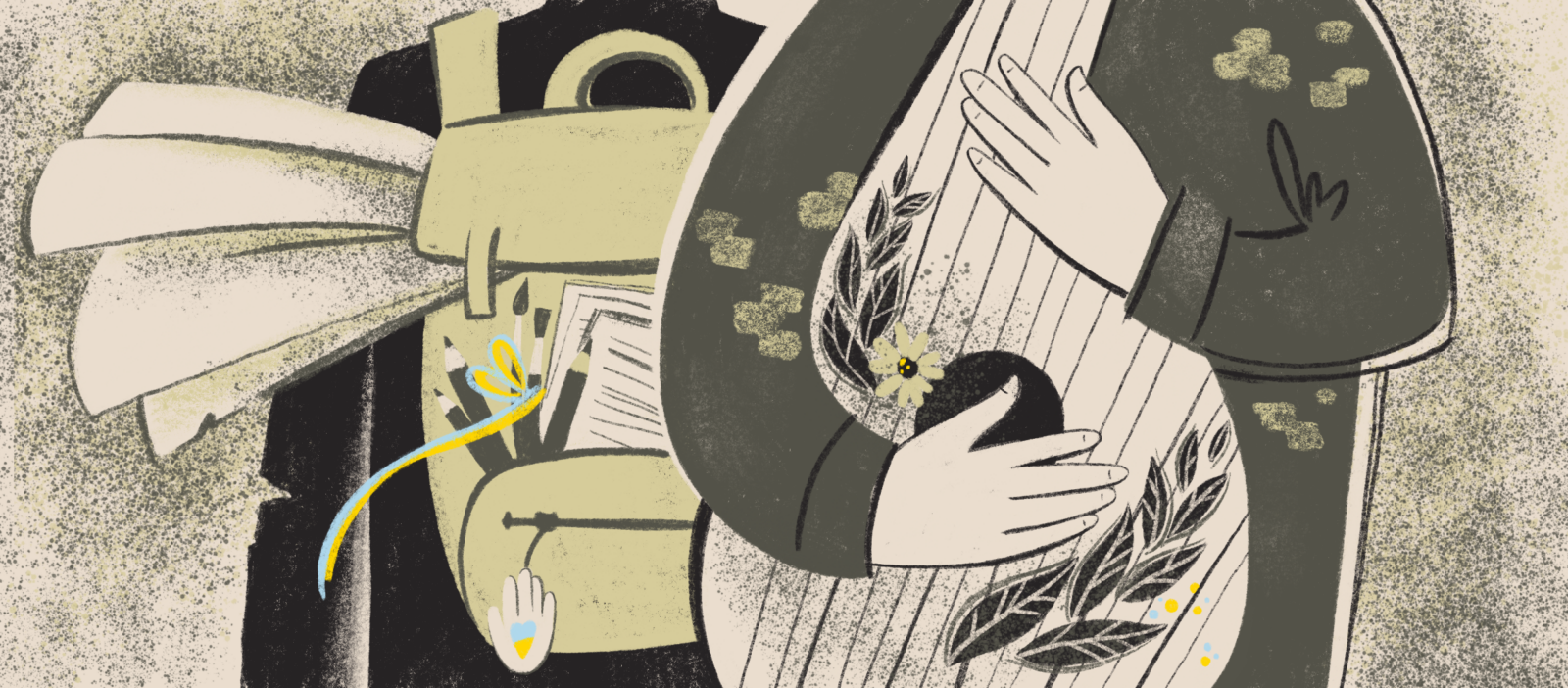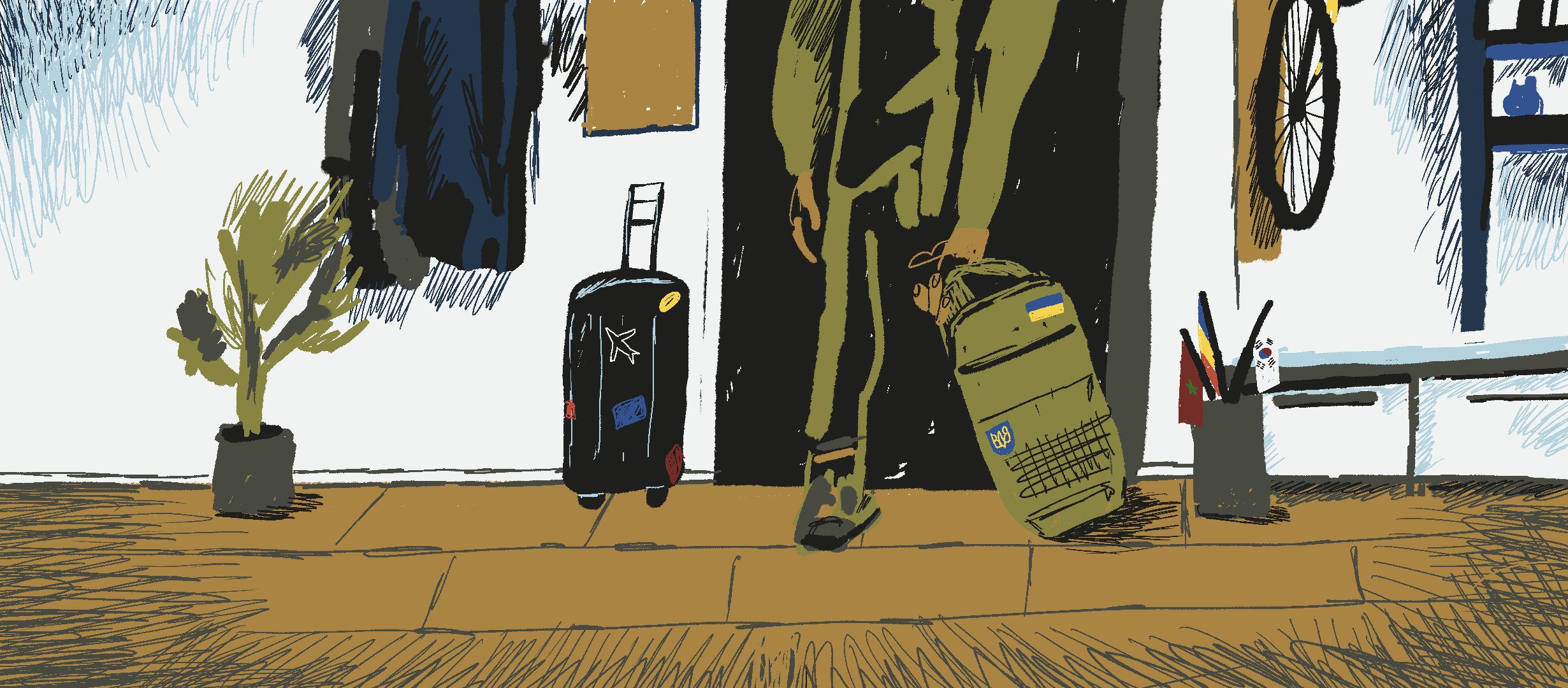Illustrated by Tanya Guschina
“We went through constant non-stop shelling. We all stayed together: no power, no heat, no gas… On the third day without electricity (March 2), all the shops and stores were looted. To cook, we had to melt snow. To get water, we had to cut the pipes in the basement and drain the water from them. Men collected snow from the roofs of the buildings, and we used that to flush the toilets. We made fires outside and cooked the cereals that people still had on them. We made flat bread as long as we had yeast. We didn’t bathe or wash our hair for several weeks,” says Olha, aged 30. She is from Mariupol.
For her, like for many citizens of Mariupol, the war started with the explosions on February 24. In a few hours she was informed that the kindergarten of her three-year-old, Polinka, stopped working. And then life became hell.
We are talking to Olha in Berdiansk on March 22 (this city has been occupied by Russians for more than three weeks — ed.). The woman’s name has been changed for safety reasons.
Olha, her husband and her daughter had been sitting in the hallway of their Mariupol apartment for two weeks, they were sleeping in their coats, it was minus 10 degrees centigrade outside and 7 degrees below freezing in their apartment. They cooked food in the yard of their apartment building together with their neighbors. They had almost run out of food. But mothers of bottle-fed babies had it the worst because they couldn’t get any formula.
When they were getting ready to go to sleep on March 9, missiles fell near their building, close to the nearby shops and the bank. The shelling continued, their walls were shaking. It was the scariest moment of the war for Olha.
Their apartment was destroyed completely. The family survived. They lived in the cold and damp basement for a day. Then they went to their parents’ place. They had to walk carrying their toddler, running from cover to cover in-between shellings by Grad multiple rocket launchers.
Olha’s parents had been living in their basement for a week. Olha and her family stayed with them for a while and then moved to their friend’s apartment which was still intact. Their parents refused to move.
“It took my husband a full hour under shelling to ride his bike back to their place just to make sure they were still alive,” says Olha. “Their apartment was also gone by then.“
On the roads there were dead bodies and human limbs. Olha’s husband checked on a friend whose building entrance had been hit by a bomb, too. It turned out that his friend had left, but there were three dead men lying there. Oleksiy helped the neighbors to bury these men in a nearby park.
After that the couple took their daughter and walked to a village near Mariupol to stay with their relatives. And the next place they stayed at was their friends’ apartment in Berdiansk which they reached on March 19.
Olha’s family couldn’t get the information about evacuation buses because there was no cell connection. “We put white ribbons on our cars, wrote the word ‘Children’ on a piece of paper and drove off, taking a terrible risk,“ the woman recalls. They drove as a part of a column, and it took them six hours to get from Mariupol to Berdiansk.
In Berdiansk, the young couple come daily to the nearest school which hosts a local refugee center. There, they can get clothes which the locals have collected and get in line for hot food. In general, during the first days of evacuation (since March 17), according to the official record, Berdiansk received over 6000 people from Mariupol. They live in apartments, resorts, the central hotel and churches.
“The war has made us homeless. It’s like you have everything and then, in one moment, you have nothing. Your child asks for food every half an hour and you consider if you should feed her now or save some for the next day because you are not sure if you’ll have it the next day,” explains Olha. “A three-year-old doesn’t understand why she can’t go and play outside and has to stay in the dark basement. It’s hell which you can’t get out of.”
Her husband Olexiy adds: “I was the manager of a department at an enterprise, and we used to have everything we needed: an apartment downtown, a good salary, we just finished renovating and we had big plans for the future. Now we don’t have a plan. We’ve come to Berdiansk, and we have nowhere to go now, we have nothing. But still, we are alive, and that’s what is the most important.“
Translated by Oksana Mekheda





